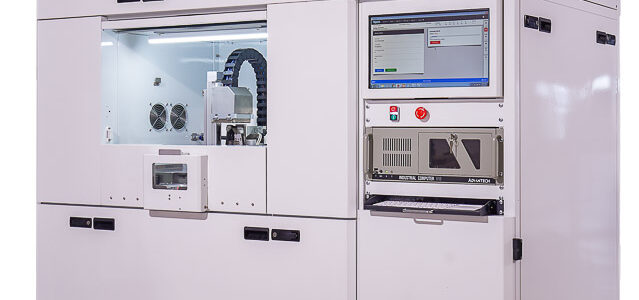
The Importance of System Level Test in the Semiconductor Industry
The semiconductor industry is the backbone of modern technology, underpinning everything from consumer electronics to advanced computing systems. Ensuring the reliability and performance of semiconductor devices is paramount, and this is where system level testing (SLT) plays a crucial role. System level testing provides comprehensive validation of semiconductor components, ensuring they function correctly within the context of a complete system. This article delves into the importance of SLT in the semiconductor industry, highlighting its significance, the role of industry standards, and key players like KES Systems in advancing SLT technology.
The Role of System Level Testing
System level testing (SLT) involves validating semiconductor devices in an environment that closely simulates real-world conditions. Unlike traditional testing methods that assess components in isolation, SLT evaluates the performance and reliability of semiconductors within an integrated system. This approach uncovers issues that might only manifest under specific operational scenarios, ensuring that devices can handle the demands of their intended applications.
Ensuring Reliability and Performance
SLT is crucial for detecting subtle defects that can impact device performance. These defects might not be apparent during initial testing phases but can lead to failures in the field. By subjecting devices to rigorous testing that mimics actual use conditions, SLT helps identify and rectify these issues early, enhancing the overall reliability of semiconductor products.
Reducing Time-to-Market
In the highly competitive semiconductor market, reducing time-to-market is essential. SLT enables faster identification of defects, reducing the time required for troubleshooting and rework. This accelerated testing process allows manufacturers to bring products to market more quickly, maintaining a competitive edge.
Industry Standards and Practices
Several industry standards govern system level testing, ensuring consistency and reliability across the board. Standards such as JEDEC’s JESD22 and AEC-Q100 for automotive electronics outline the procedures and requirements for stress testing and qualification of semiconductor devices. These standards provide a framework for SLT, ensuring that devices meet stringent reliability and performance criteria before they reach consumers.
Key Players in System Level Testing: KES Systems
KES Systems is a prominent player in the semiconductor testing industry, offering a comprehensive suite of solutions for burn-in testing, reliability testing, and system level testing. With over four decades of experience, KES Systems has established itself as a leader in providing advanced and customizable testing solutions.
Advanced Testing Capabilities
KES Systems excels in providing system level testing solutions that address the evolving needs of the semiconductor industry. Their advanced SLT systems ensure that devices perform reliably under various stress conditions. The company’s expertise in functional testing, stress testing, and wafer level burn-in (WLBI) underscores its commitment to quality and innovation.
Customizable Solutions
Recognizing that different semiconductor devices have unique testing requirements, KES Systems offers customizable testing solutions. Their systems can be tailored to specific temperature ranges, voltage levels, and testing durations, ensuring optimal testing conditions for each device. This flexibility is critical in accommodating the diverse needs of the semiconductor industry.
Benefits of System Level Test: A Multi-Pronged Advantage
The advantages of incorporating SLT into the semiconductor development cycle are manifold:
- Enhanced Fault Coverage: By testing the chip under realistic operating conditions, SLT exposes faults that might remain hidden during traditional ATE. This proactive approach leads to the identification and rectification of issues early in the development process, significantly reducing the risk of post-production bugs.
- Improved Quality and Reliability: SLT ensures that chips perform flawlessly within their intended systems, leading to a higher quality and more reliable end product. This translates to a better user experience and a stronger reputation for chip manufacturers.
- Reduced Time to Market: Early detection and resolution of faults through SLT expedite the development process, allowing manufacturers to get their products to market faster. In today’s competitive landscape, shaving off even a few weeks can be a significant advantage.
- Lower Overall Costs: While the initial investment in SLT equipment might be higher, the long-term cost savings are substantial. Early detection of faults minimizes the need for expensive rework and production delays, leading to a more cost-effective development cycle.
- Advanced Software and Hardware Integration Testing: SLT allows for in-depth testing of software interaction with hardware, uncovering compatibility issues and ensuring seamless system operation.
Semiconductor Companies Utilizing SLT
Several leading semiconductor companies rely on system level testing to ensure the quality and reliability of their products. Companies like Intel, Qualcomm, and Texas Instruments integrate SLT into their testing processes to validate the performance of their devices under real-world conditions. By adopting SLT, these companies can deliver robust and reliable semiconductor products to the market.

KES Systems: A Key Player in the System Level Test Market
KES Systems Inc. is a frontrunner in the realm of SLT solutions, providing innovative hardware and software platforms that cater to the diverse needs of chip manufacturers. Their industry-leading SLT systems are specifically designed to address the challenges associated with testing complex SoCs (Systems-on-Chip) and next-generation processors.
KES Systems’ SLT solutions offer several advantages:
- Scalability and Flexibility: Their platforms can be easily scaled to accommodate the ever-increasing complexity of chips, allowing manufacturers to test a wide range of devices efficiently.
- Comprehensive Test Coverage: KES Systems’ SLT solutions provide a comprehensive suite of tests that go beyond traditional pin-level testing, ensuring thorough evaluation of chip functionality.
- Ease of Use: User-friendly interfaces and intuitive software tools make KES Systems’ SLT platforms accessible to engineers with varying levels of expertise.
- Cost-Effectiveness: The long-term cost savings associated with early fault detection and faster development cycles make KES Systems’ SLT solutions a worthwhile investment for chip manufacturers.
The Future of System Level Test
As the semiconductor industry continues to push the boundaries of miniaturization and complexity, SLT will undoubtedly play an even more crucial role in ensuring chip quality and delivering reliable products to market. KES Systems, with its cutting-edge SLT solutions, is well-positioned to be a leader in this evolving landscape, empowering chip manufacturers to navigate the complexities of modern semiconductor development.
System level testing is indispensable in the semiconductor industry, providing a robust framework for ensuring the reliability and performance of semiconductor devices. With industry standards guiding the process and key players like KES Systems leading the way, SLT continues to evolve, addressing the complex demands of modern semiconductor applications. By embracing advanced SLT methodologies, semiconductor manufacturers can reduce time-to-market, enhance product reliability, and maintain a competitive edge in an ever-evolving technological landscape.
For more information about KES Systems and their contributions to system level testing, visit KES Systems Inc., Burn-In and Test Solutions
